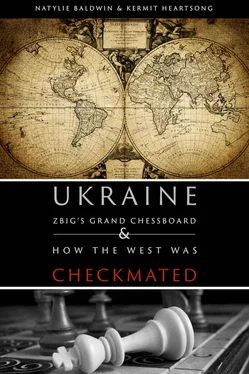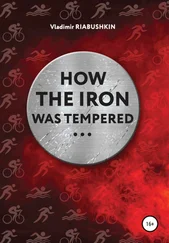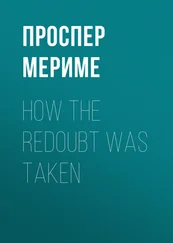Kermit Heartsong - Ukraine - ZBIG's Grand Chess Board & How The West Was Checkmated
Здесь есть возможность читать онлайн «Kermit Heartsong - Ukraine - ZBIG's Grand Chess Board & How The West Was Checkmated» весь текст электронной книги совершенно бесплатно (целиком полную версию без сокращений). В некоторых случаях можно слушать аудио, скачать через торрент в формате fb2 и присутствует краткое содержание. Год выпуска: 2015, Жанр: Политика, на английском языке. Описание произведения, (предисловие) а так же отзывы посетителей доступны на портале библиотеки ЛибКат.
- Название:Ukraine: ZBIG's Grand Chess Board & How The West Was Checkmated
- Автор:
- Жанр:
- Год:2015
- ISBN:нет данных
- Рейтинг книги:4 / 5. Голосов: 1
-
Избранное:Добавить в избранное
- Отзывы:
-
Ваша оценка:
- 80
- 1
- 2
- 3
- 4
- 5
Ukraine: ZBIG's Grand Chess Board & How The West Was Checkmated: краткое содержание, описание и аннотация
Предлагаем к чтению аннотацию, описание, краткое содержание или предисловие (зависит от того, что написал сам автор книги «Ukraine: ZBIG's Grand Chess Board & How The West Was Checkmated»). Если вы не нашли необходимую информацию о книге — напишите в комментариях, мы постараемся отыскать её.
Ukraine: ZBIG's Grand Chess Board & How The West Was Checkmated — читать онлайн бесплатно полную книгу (весь текст) целиком
Ниже представлен текст книги, разбитый по страницам. Система сохранения места последней прочитанной страницы, позволяет с удобством читать онлайн бесплатно книгу «Ukraine: ZBIG's Grand Chess Board & How The West Was Checkmated», без необходимости каждый раз заново искать на чём Вы остановились. Поставьте закладку, и сможете в любой момент перейти на страницу, на которой закончили чтение.
Интервал:
Закладка:
The problem for our country was that for a very long time, it was Russia on one side, and on the other practically the whole rest of the world. And we gained nothing good from this confrontation with the rest of the world. The overwhelming majority of our citizens understand this all too well. Russia is returning to the family of civilized nations. And she needs nothing more than for her voice to be heard and for her national interests to be taken into account. (Roxburgh 2013)
Bush II's senior director for Russia on the National Security Council, Thomas Graham, admitted to Reuters in an April, 2014 interview that an alternative that was not pursued by the US was to dissolve NATO and create a new pact that reflected new global realities and eventually included Russia (Rohde and Mohammed 2014).
The unwillingness to allow Russia into NATO or to come up with an alternative alliance that could be in everyone's interest represented another lost opportunity that would prove to have fateful consequences. Putin's cooperation and stated yearning to be accepted into the western world not only didn’t get him a meaningful chance at NATO membership, but it didn't stop Bush's insistence on unilaterally pulling out of the ABM Treaty to pursue a missile defense shield — a move that basically tells Russia that the US reserves the right to a nuclear first strike without retaliation.
According to Soviet/Russia expert, Patrick Armstrong (2009), the West's mentality toward post-Soviet Russia has been one of either condescension or hostility or a strange combination of both. The condescension justifies having economic advisors go in and induce “shock therapy” on the nation in the 1990s, as well as lambasting it when convenient for not being a full-fledged liberal democracy after only 20-some years of attempts following one thousand years of authoritarian rule, including the czars and the Soviets.
The aforementioned NATO membership charade was preceded by Bill Clinton, his amiable relations with his Russian counterpart notwithstanding, when he delivered these patronizing words to a departing Boris Yeltsin, over whose objections he began NATO expansion, representing one of the few times Yeltsin briefly lashed out at the US after being rather subservient on the matter:
Boris, you've got democracy in your heart, you've got the trust of the people in your bones, you've got the fire in your belly of a real democrat and reformer. I'm not sure Putin has that. You'll have to keep an eye on him and use your influence to make sure that he stays on the right path. Putin needs you, Boris. Russia needs you…You changed Russia. Russia was lucky to have you. The world was lucky you were where you were. I was lucky to have you. We did a lot of stuff together, you and I…We did some good things. They'll last. It took guts on your part. A lot of that stuff was harder for you than it was for me. I know that. (Roxburgh 2013)
As will be discussed in Chapter 4, rather than being the flaming democrat that American politicians and mainstream media hailed at the time, Yeltsin was corrupt, utterly compliant to the US's desires, and more authoritarian in many respects than Putin. He was also deeply unpopular among his own people by the time he left office (Roxburgh 2013; Klein 2007).
In a candid conversation with his deputy secretary of state, Strobe Talbot, in 2006, Bill Clinton made an admission that reflected the American political elite's attitude toward post-Soviet Russia, saying “We keep telling Ol' Boris, 'Okay, now here's what you've got to do next — here's some more shit for your face'” (Bhadrakumar 2006).
The hostility is exemplified by NATO expansion, missile defense shields and accusations that Russia has imperial ambitions if it asserts its political and economic independence or insists that it also has legitimate interests in its own backyard.
This evaluation, however, really only tells the story of the mindset of the politicians and advisors around the presidents who have had the most influence from Clinton to the present. Another attitude does exist among some leaders and advisors, but it has been overruled by the assortment of Russophobes and Neo-Imperialists operating under the banner of neoconservatives, humanitarian interventionists, or Brzeziński advocates of the Grand Chessboard previously discussed.
As a case in point, in the Bush II administration, there was a split about the proper approach to Russia. There was, according to former BBC Moscow correspondent Angus Roxburgh, the “Russophiles” led by Secretary of State Colin Powell, who believed in trying to understand Russia's concerns and their legitimate right to consideration of their interests. This perspective was more in line with some of Western Europe, particularly France and Germany. In addition to trade and economic ties, there was the view there that Russia was like a prodigal son that should be welcomed home due to a sense of shared history and culture. It was also believed that this approach was the best way to strengthen democracy in Russia (Roxburgh 2013). Indeed, as some independent analysts have pointed out, had the West made a good faith attempt to integrate post-Soviet Russia into the European community, there would have been no “civilizational” clash for countries like Ukraine to be caught in the middle of (Petro 2014).
The other camp was led by the Neoconservatives who adhered to the belief that the United States “won” the Cold War and that Russia should accept its position as a vanquished nation that would have little say over anything the US did, even in its own border regions, no matter how myopic or reckless it turned out to be. Jack Matlock has publicly denounced this dangerous re-writing of history:
“Reagan normally rejected [the Neoconservatives] advice if it involved refusing to talk to adversaries. But when his policies actually worked, instead of conceding that Reagan was right and they were wrong, they have sought explanations for the end of the Cold War that bolster the myths that have plagued us. Thus the idea is perpetuated that it was US force and threats, rather than negotiation, that ended the Cold War, and also that Reagan's rhetoric “conquered” communism, and that the collapse of the Soviet Union was the equivalent of a military victory. These claims are all distortions, all incorrect, all misleading, and all dangerous to the safety and future prosperity of the American people.” (Matlock 2010)
By 2002, seven more nations of Eastern Europe were invited to join NATO (they were admitted in 2004), creating another strain in the American relationship with Russia. By March of 2003, further problems emerged as Russia, correctly recognizing that Saddam Hussein had nothing to do with Al-Qaeda or terrorism, made a last minute, behind-the-scenes diplomatic push to avert the war. When that failed, they partnered with France and Germany to oppose the invasion at the UN (Roxburgh 2013).
Two months later, Bush made a stop in Poland — a country whose political class has historically had Russophobic tendencies and had supported the US invasion of Iraq, like all of the new post-Cold War members of NATO — before heading to St. Petersburg for its 300 thanniversary celebrations. This insult was the nail in the coffin for Putin's attempts to establish a mutually respectful and beneficial relationship with the US. He was later overheard telling French Prime Minister Chirac at the event: “My priorities were the following: first a relationship with America, second with China, third with Europe. Now it's the other way around — first Europe, then China, then America” (Roxburgh 2013; Nazemroaya 2012; Rozoff 2010).
As we shall see later, it was the successful results of that revised program of prioritizing a relationship with Europe and China that the US later viewed as a threat.
Читать дальшеИнтервал:
Закладка:
Похожие книги на «Ukraine: ZBIG's Grand Chess Board & How The West Was Checkmated»
Представляем Вашему вниманию похожие книги на «Ukraine: ZBIG's Grand Chess Board & How The West Was Checkmated» списком для выбора. Мы отобрали схожую по названию и смыслу литературу в надежде предоставить читателям больше вариантов отыскать новые, интересные, ещё непрочитанные произведения.
Обсуждение, отзывы о книге «Ukraine: ZBIG's Grand Chess Board & How The West Was Checkmated» и просто собственные мнения читателей. Оставьте ваши комментарии, напишите, что Вы думаете о произведении, его смысле или главных героях. Укажите что конкретно понравилось, а что нет, и почему Вы так считаете.











